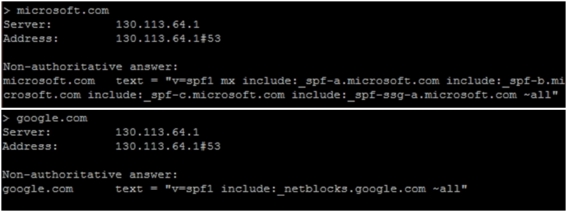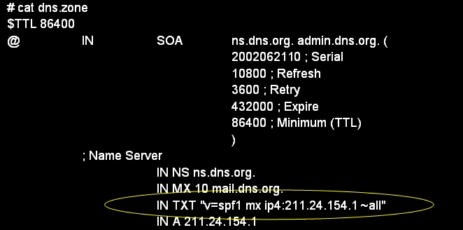Anti-spam Systems and Techniques
From Computing and Software Wiki
Now a days the email system has become the most significant technology and a useful tool for human beings in the world. In the US alone, 88% of adult users have email accounts and half of email users use email systems almost every day. However, like growing email users, spam, scam, and fishing emails are increasing. Lots of email providers, such as Gmail, Hotmail, have been making an effort to protect their users from spam, scam, and fishing emails. Accordingly, I’ll discuss some new techniques for anti-spam systems and how to improve the anti-spam system on the server through SPF (Sender Policy Framework), SenderID, Domain Keys, and DKIM(Domain Key Identified Mail).
Contents |
Time to replace SMTP?
SMTP is a simple and text based protocol using port 25. It was formally defined in RFC 821 as improved by RFC 1123, but today, ESMTP defined in RFC 2821 is widely used. SMTP has many security problems but SMTP servers became more secure as users began writing their own servers such as Microsoft Exchange Servers, Qmail and Postfix. However, SMTP stays at the core of current junk email problems. Moreover, junk email is highly approaching 90% of all email traffic on the internet and like growing email users, spam, scam, and fishing emails are increasing.
Anti-spam technique through Procmail
Procmail is one of the email filtering softwares and Mail Delivery Agents (MDA) widely used on Unix and Linux systems. It is placed between the Mail Transfer Agent (MTA) like Sendmail and users mail boxes. In order to use procmail, the procmailrc configuration file of procmail is needed to setup. The procmailrc is like below the picture.
New Anti-spam Systems
SPF (Sender Policy Framework)
Sender Policy Framework (SPF) is the one of the new anti-spam technology and open standard to prevent sender address forgery. SMTP allows to send and receive emails any of domains so it is very easy to send spams through SMTP servers. SPF allows to use TXT record in the DNS server. For example, when inbound server receives an email, checking SPF record and if it is from unauthorized machine, it rejects the email.
The records are laid out like this
SIDF (Sender ID Framework)
SIDF was designed by Microsoft. It certifies sender addresses through SPF record and uses very similar methods name syntax as SPF. However, SIDF is not the latest version of SPF. For more information, click this link
DKIM (DomainKeys Identified Mail)
The first version of DKIM was combined DomainKeys designed by Yahoo and Identified Internet Mail by Cisco. Today, many email providers such as AOL, Yahoo, Cisco, Microsoft, PGP, IBM, and Gmail collaborate to develop more enhanced version of DKIM. DKIM offers methods for validating a domain name identity that is associated with a message through encoded DKIM signature header. It validates email by DKIM signature header. The public key stored in DNS.
Anti-spam System and Techniques
There are many effective anti-spam solutions in the world. But still it is impossible to block 100% of spam because of the inefficient sendmail system. Still, most of email users suffer from unwanted emails. As described above, we can build better and more efficient sendmail systems through new anti-spam techniques so that users don’t need any spam filtering tools.
- Step One: Insert TXT record (SPF and Domain Keys) into DNS zone file
- Step Two: Set email server to validate emails have valid headers through TXT record of DNS server (Sender's DNS)
- Step Three: It is good idea to use both SPF, DKIM and spam filters
See Also
- Random Number Generators and Information Security
- Security and Storage Mediums
- Piggybacking
- Honeypot
- Phishing
- Biometrics in Information Security
- Electronic Voting Systems
- Payment Card Industry Data Security Standard
- Operating Systems Security
- Autocomplete
- Identity Theft
External links
- SPF: Project Overview
- Sender ID Framework
- DomainKeys Identified Mail (DKIM)
- IETF Decides On SPF / Sender-ID issue
- RFC 4871 - The DKIM Base Specification
References
- PROCMAIL QUICK START <http://www.ii.com/internet/robots/procmail/qs>
- Opinion: Is It Time to Replace SMTP? By Dave Crocker (Cisco) <http://www.cisco.com/web/about/ac123/ac147/archived_issues/ipj_10-2/102_smtp.html>
- SMTP <http://en.wikipedia.org/wiki/Simple_Mail_Transfer_Protocol>
- DomainKeys identified Mail (DKIM) <http://dkim.org>
- Sender ID <http://www.microsoft.com/mscorp/safety/technologies/senderid/default.mspx>
- SPF (Sender Policy Framework) Project <http://www.openspf.org>
- SPF vs. Sender ID <http://www.openspf.org/SPF_vs_Sender_ID>
- How Gmail Blocks Spam <http://googlesystem.blogspot.com/2007/10/how-gmail-blocks-spam.html>
--Leehw 11:51, 8 December 2007 (EST)




